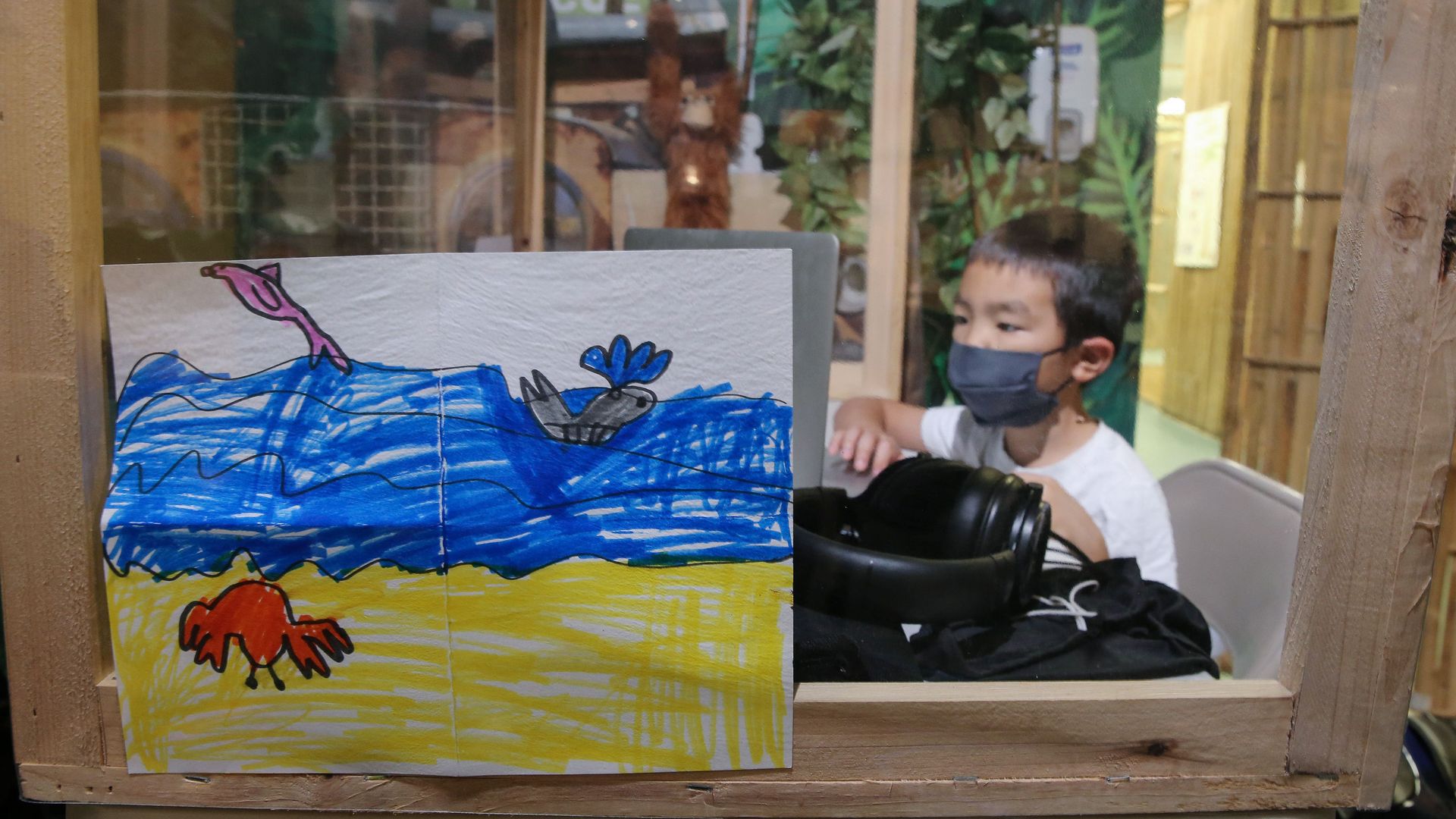Nov 30, 2020 - Politics & Policy
Families sue California over remote learning pandemic measures
Add Axios as your preferred source to
see more of our stories on Google.

A student works on his laptop in his socially distanced protective learning pod at a remote learning hub in Culver City, California. Photo: Mario Tama via Getty
